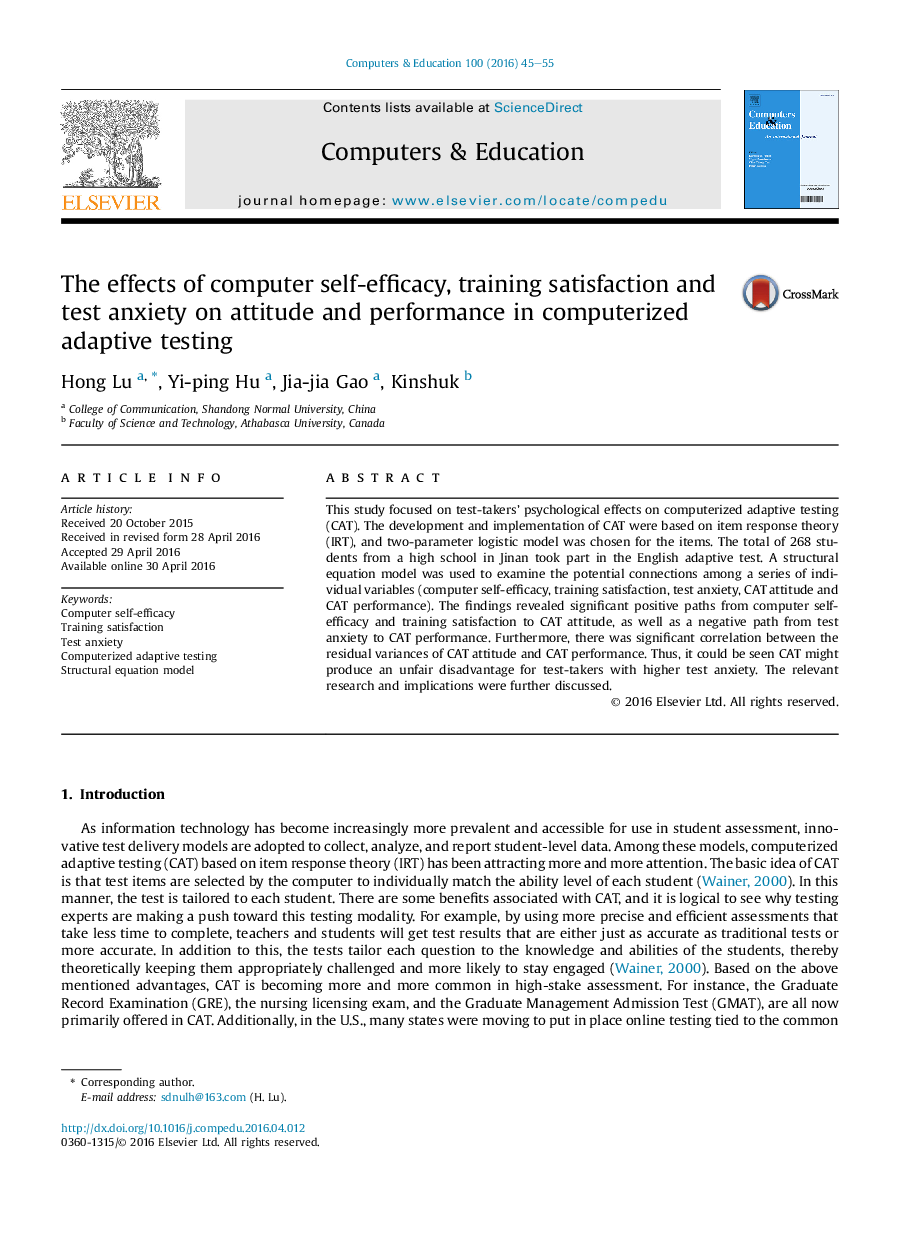| کد مقاله | کد نشریه | سال انتشار | مقاله انگلیسی | نسخه تمام متن |
|---|---|---|---|---|
| 348151 | 618158 | 2016 | 11 صفحه PDF | دانلود رایگان |
• The researches on CAT and psychological effects have yielded mixed results.
• A causal model of CAT was constructed in this study.
• The results showed that CAT might produce an unfair disadvantage for test-takers with higher test anxiety.
• CAT training and increasing computer self-efficacy could improve individual attitude to CAT.
• The differences in information technology facilities in different areas would not influence CAT performance significantly.
This study focused on test-takers’ psychological effects on computerized adaptive testing (CAT). The development and implementation of CAT were based on item response theory (IRT), and two-parameter logistic model was chosen for the items. The total of 268 students from a high school in Jinan took part in the English adaptive test. A structural equation model was used to examine the potential connections among a series of individual variables (computer self-efficacy, training satisfaction, test anxiety, CAT attitude and CAT performance). The findings revealed significant positive paths from computer self-efficacy and training satisfaction to CAT attitude, as well as a negative path from test anxiety to CAT performance. Furthermore, there was significant correlation between the residual variances of CAT attitude and CAT performance. Thus, it could be seen CAT might produce an unfair disadvantage for test-takers with higher test anxiety. The relevant research and implications were further discussed.
Journal: Computers & Education - Volume 100, September 2016, Pages 45–55
